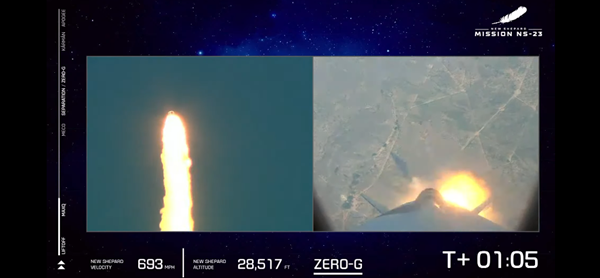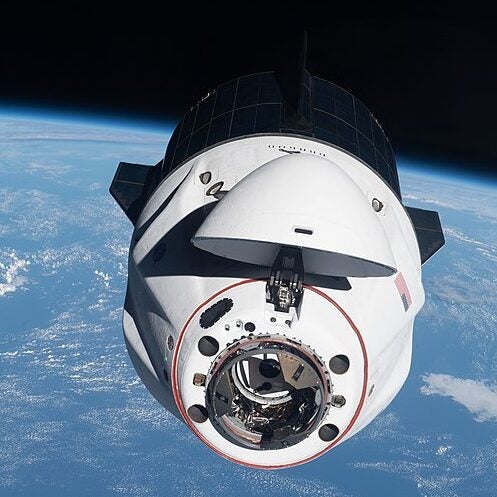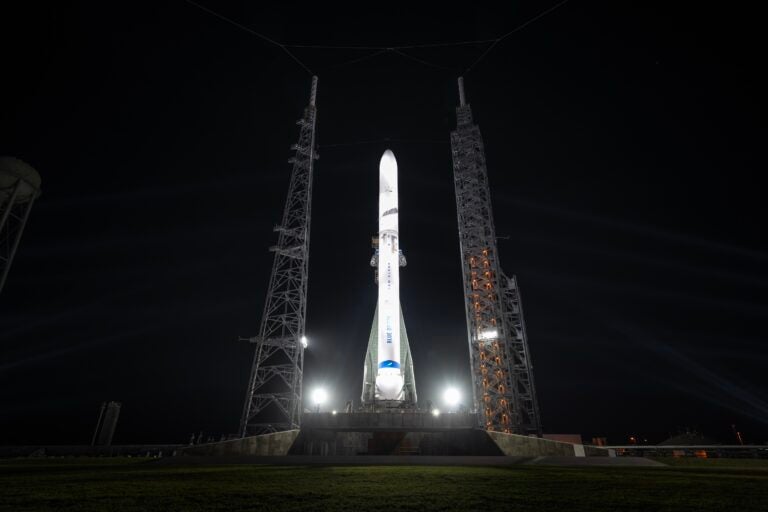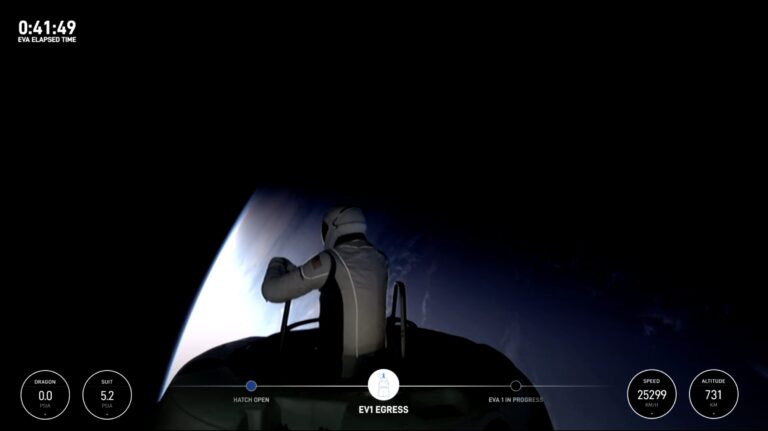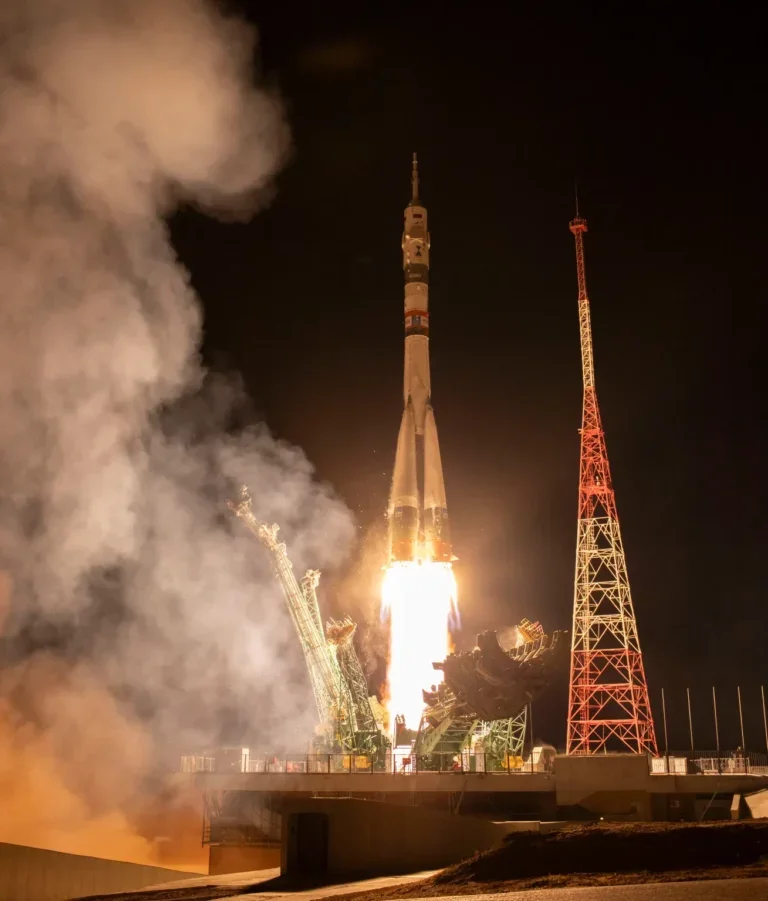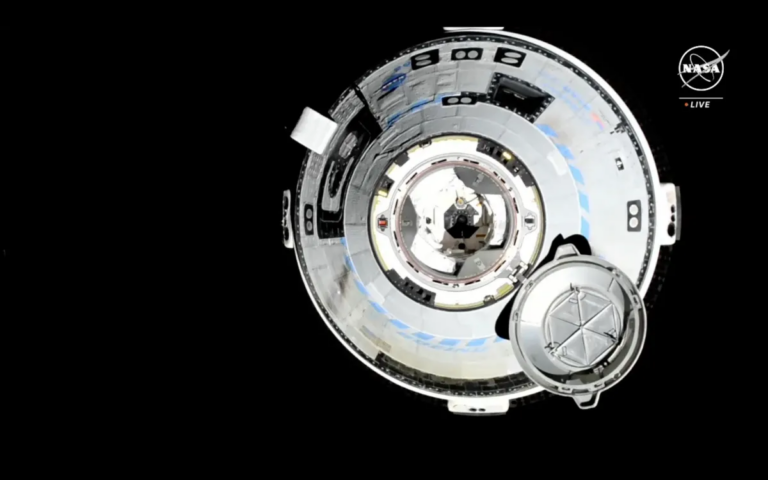Yesterday (Sept. 12) marked the fourth launch of the year for Blue Origin’s New Shepard rocket. And even though it was the rocket’s first uncrewed mission of the year, the flight was anything but dull.
The NS-23 mission launched at 9:27 A.M. CDT, and within a minute of takeoff, a failure of the rocket’s booster triggered the capsule escape system.
While the booster was not recovered, the capsule successfully blasted away from the danger before landing safely. According to tweets from Blue Origin hours after the attempt, there were no reported injuries and all personnel are accounted for. A representative from Blue Origin declined Astronomy‘s request for additional comment on what caused the booster failure.
In response to the incident, the FAA has grounded all New Shepard flights while it oversees an investigation into the mishap. The dramatic flight also appears to have caught the eye of Congress.
“Today’s booster failure of NS-23 is a compelling reminder of the risks of spaceflight,” said Rep. Don Beyer, Chairman of the Space and Aeronautics Subcommittee, in a statement. “As commercial human spaceflight is now a reality, the Subcommittee’s work on the safety of commercial human spaceflight is more important than ever.”

